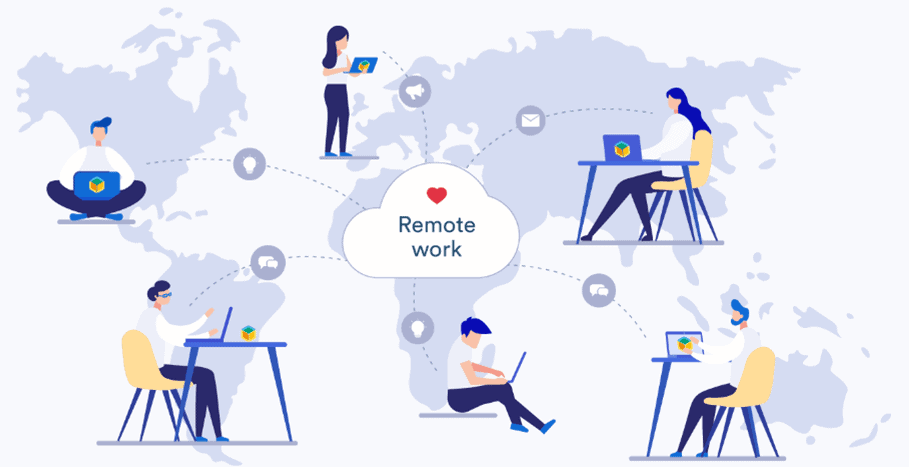By Sheila Roberts
This blog continues our series on remote working to build a team which delivers effectively. We know that co-location of teams is a powerful way to improve collaboration and reduce misunderstanding of communications, so when everyone is remote we need to think through how to manage our teams to be effective.
Our first blog focussed on over communication next is availability. An open door policy is not possible without a door – or is it?
2). Make yourself available
Isolation is at its most when someone on your team is having a hard time. When most of your communication is likely to be through email, or web tools it can be challenging for your team to know when and how to contact you.
Make your availability clear in your calendar and offer guidelines for how to get time with you. You might hold extra office hours or schedule regular 1:1 meetings. Create space for your team to contact you, which is implicitly saying that they can share how they’re feeling and come to you for help, advice, or celebration.
This extra time might mean that you have a little less time for your work. But by setting this time aside, you’re helping the entire team do more. When you create space for your team to be authentic, you’re helping them get their best work done.

- Use face-to-face conversations where possible
Even though you can’t see your team in person, video conversations are a major asset in your toolkit. Video provides valuable context, and makes the remote work experience feel more human than a phone call or email. While not every meeting needs to be a video call, create a policy for when video is expected or needed.
When managing remotely, some strategies will help you empower your team and make them feel more connected to each other and their work.
It’s also critical for your team to have fun face-to-face conversations—the way you would in a physical office. Consider having a virtual coffee time, happy hour or lunch regularly, or encourage your team to a regular game, quiz etc. Though you no longer have coffee station conversations, making space for more relaxed conversations will keep your team connected.
Look out for the next in our blog series on remote team management tips.
